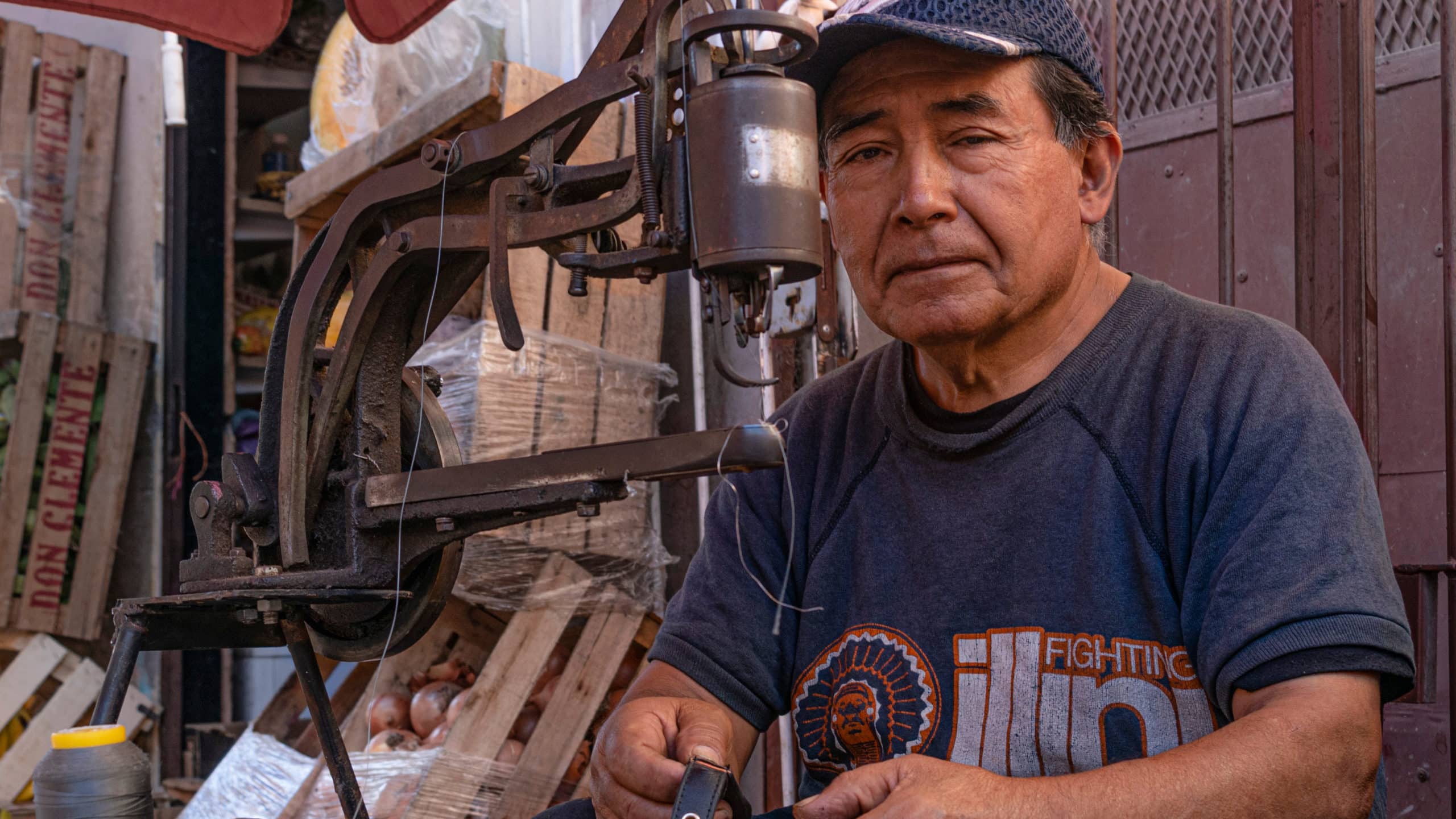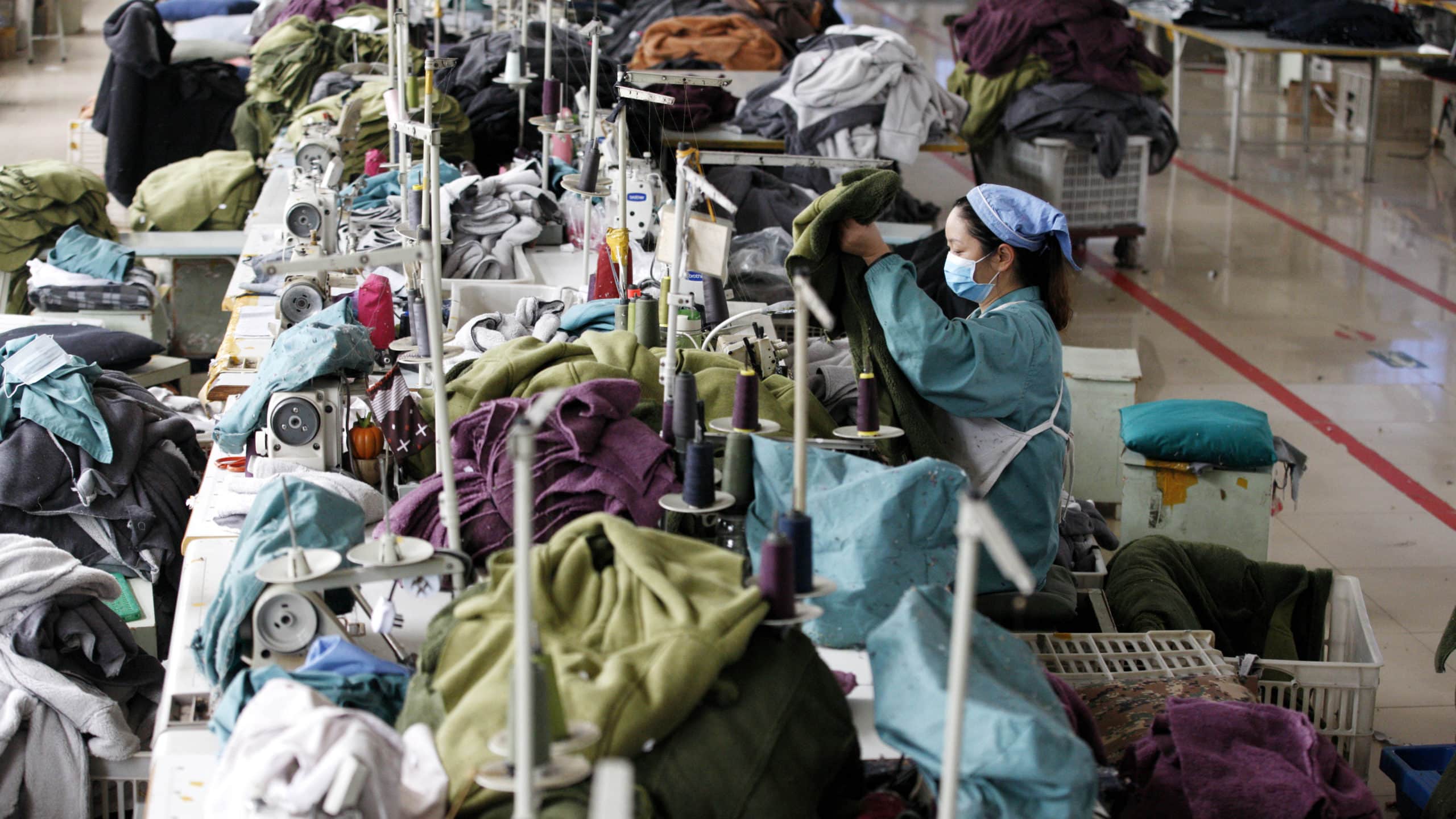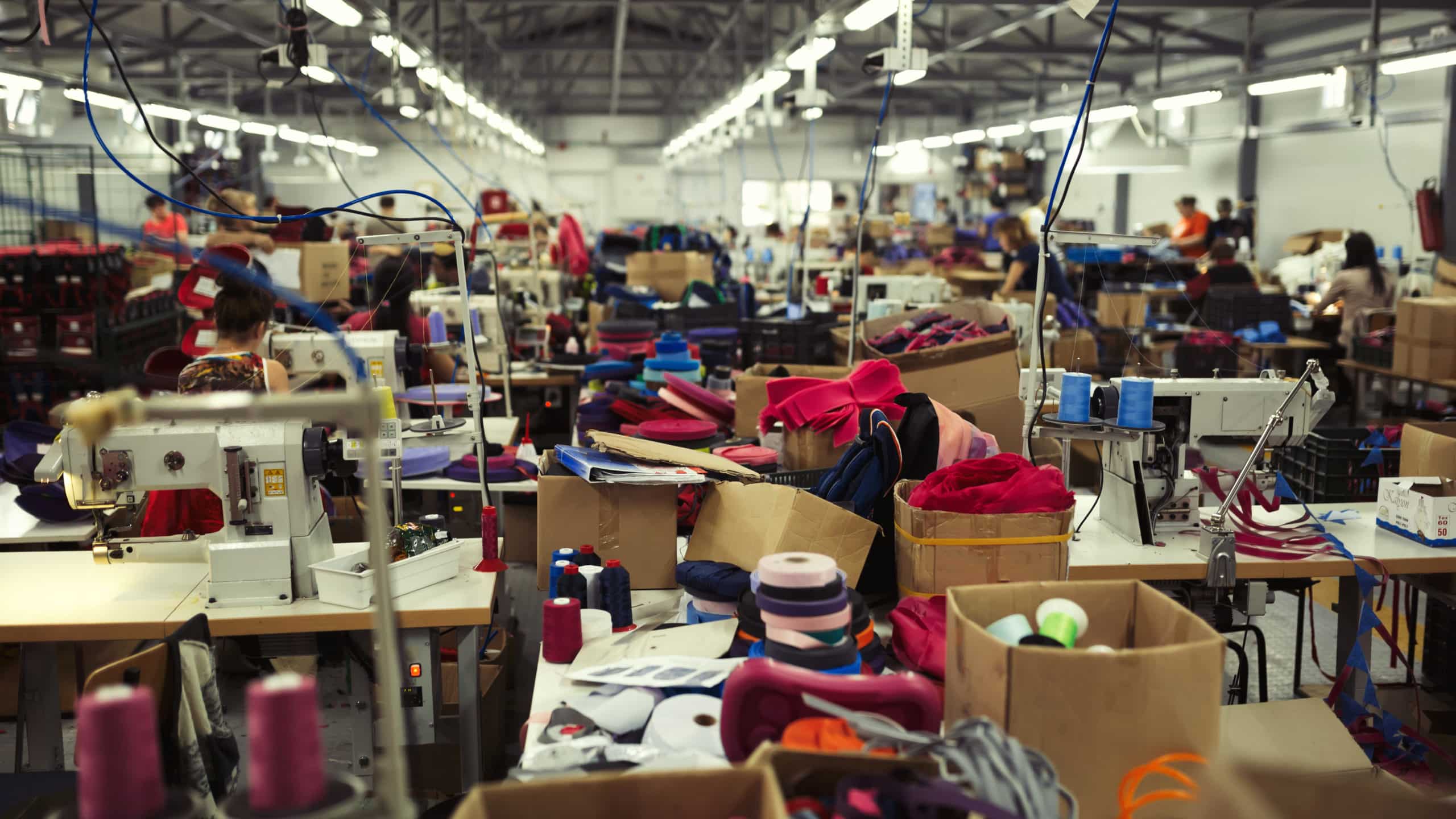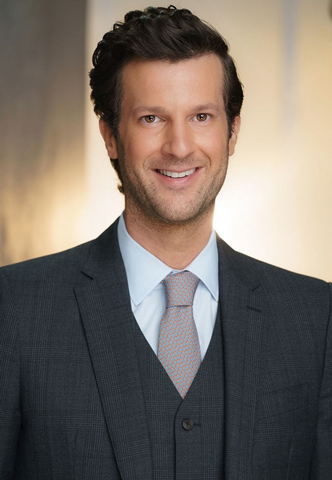“The factories where I worked had no social distancing nor health measures. In some factories we were spaced no more than one meter apart… I try to look after myself and my health. If I die, it’s my family that suffers.
I was paid 40 cents to sew together an entire blouse 20 years ago; today I am being paid 35 cents.”
Pablo Hernandez, Garment Maker
“We work 60 to 70 hours a week for a salary of $250 to $300. It’s not enough to take care of our families.”
Santa Puac, Gament Maker
Garments manufactured in Los Angeles, California, generate roughly $5 billion per year in revenue. The garment industry employs around 45,000 Angelinos. Calling LA the garment production capital of the U.S. would be an understatement.
Despite the profitability of the garment industry, workers were paid per piece produced, earning an average of $5.85 an hour – far below LA’s minimum wage of $14-15. Random inspections of 100 LA garment factories carried out by the Department of Labor found that 85% violated wage laws.
The COVID-19 pandemic only drew more attention to the illegal treatment of LA garment workers. Factories refused to comply with safety precautions mandated to combat the pandemic, resulting in thousands of workers contracting COVID-19 – many of whom died.
In late September, 2021, the California State Legislature signed Senate Bill 62 into law. SB62 requires factory owners to pay workers using the LA minimum wage and holds fashion brands accountable for labor law violations carried out by subcontractors.
Politicians called the passage of SB62 “momentous,” and they’re not wrong. The law, which just went into effect at the start of January 2022, could significantly change the landscape of garment manufacturing in the U.S. Today, we’re exploring this history of LA’s garment industry, and what to expect from its future.
What Does SB62 Do to Protect LA Garment Workers?
Under SB62:
- Garment workers must be paid hourly according to LA minimum wage laws, not per piece. As a result, garment workers will now make $14-15 an hour, depending on the size of their employer. For many, this means double or triple their former earnings.
- Fashion brands will be held at least partially liable when subcontractors such as factory owners commit labor law violations. SB62 originally proposed that fashion brands be held fully liable for labor law violations committed by subcontractors, but the bill was amended before signing, so brands only have partial liability instead.
- The bill includes additional protections for workers at every stage of the supply chain, ensuring brands supply subcontractors with the necessary resources to pay workers minimum wage. A previous investigation of 77 factories found that the average factory only receives 73% of the price they need from retailers and brands to pay employees minimum wage.
The bill is the first of its kind in the U.S. California politicians, including Senator Maria Elena Durazo, who authored the bill, have voiced hope it could inspire similar legislation across the U.S. and Mexico.

Why Is Holding Clothing Brands & Retailers Accountable So Important?
The second and third points of the bill – holding brands partially liable for labor law violations and ensuring subcontractors receive the necessary resources to pay garment workers minimum wage – are particularly important.
To absolve themselves of liability for labor law violations, large fashion brands often use subcontractors to complete their work. If a brand wants to produce a garment, it hires a factory owner as a subcontractor. The factory owner is then responsible for sourcing and paying the employees. Under this model, factory owners were fully liable for labor law violations – until SB62.
As we mentioned earlier, most factories don’t receive enough resources from brands and retailers to actually pay workers minimum wage. As a result, the only way for factories to make money is by paying workers below the minimum wage.
It was a perfect system for big fashion brands – in the worst way possible. Brands obtained clothing cheaply, sold it at a substantial markup, and committed labor law violations by proxy – all without any accountability.
Even when officials investigated factory owners for wage and labor law violations, workers often got the short end of the stick. Factory owners in the LA garment industry are notorious for shutting down factories and cleaning house in the middle of the night when found guilty of or under investigation for labor law violations. They may then declare bankruptcy to avoid financial responsibility. It’s not uncommon for workers to sew garments at a factory one day only to find it empty the next, leaving them nothing to show for their efforts.
SB62 flips the script on fashion brands. Holding brands partially liable for labor law violations carried out by subcontractors means that brands now have skin in the game. If a subcontractor violates the law, the brand that employed them faces a financial hit – even if the subcontractor “flies by night.”
Forcing brands to pay subcontractors more also makes it so factory owners can no longer claim they only committed wage violations because a brand or retailer didn’t pay them enough.
These two measures – holding brands partially liable for the actions of subcontractors and forcing them to pay subcontractors more – close the major loopholes both subcontractors and brands took advantage of to abuse garment workers.

Did Anyone Oppose SB62?
Large fashion brands – not-so-coincidentally, many of which have a history of wage violations – opposed the bill. Some politicians also fought against passing SB62. Opponents of the legislation claimed that passing the bill would result in brands and retailers moving elsewhere, leaving garment industry workers jobless.
However, other politicians and garment industry advocates have argued against such notions. With around 45,000 highly-trained workers and much of the U.S. garment industry’s production supplies and pipeline located in California, proponents of SB62 argue that moving operations would be economically infeasible for brands and retailers. They claim that the threat of brands and retailers moving is – pardon the turn of phrase – manufactured, smoke and mirrors that opponents of SB62 throw up to avoid suffering the consequences of the bill.
“I challenge them to go somewhere else and get the same kind of production, the same kind of quality production that they get in Los Angeles.”
Victor Narro, UCLA Professor
“It was never a California-only issue. When it comes to joint liability and multilateral accountability, this is a bill of national and global interest.”
Ayesha Barenblat, Remake CEO
“Everything you need is here… you might save some money on an hourly rate for a sewer in Texas, but if you have to ship everything from your dye house in LA to Texas just to sew it, it doesn’t pan out.”
Bo Matthew Metz, Bomme Studio Founder
Overall, SB62 had more supporters than detractors. Remake – an organization dedicated to helping pass SB62 – gathered signatures from 158 brands that supported the legislation.
Many of the bill’s strongest proponents are local and boutique brands and retailers, as well as those already committed to ethical production. They believe the bill will level the playing field, allowing smaller, local brands and retailers to compete against large corporations more easily. Garment makers and distributers already committed to ethical manufacturing processes support the bill for similar financial and moral reasons.
“We wanted to show that this would be good for workers, but it’s also good for business. For the designers who want to do right by their workers, it’s leveling the playing field [by outlawing] the sweatshop conditions that have hurt the reputation of made in LA.”
Ayesha Barenblat

SB62 Went Into Effect on January 1st, 2022 – What’s Next?
Now that SB62 is in-effect in California, garment worker advocates are focused on two things: Ensuring the bill is actually enforced, and expanding it to other states.
New York Governor Kathy Hochul recently partnered with NYFW: The Shows, an organization dedicated to helping local designers show their work at fashion shows free of charge. Hochul signaled that helping the New York fashion industry thrive is at the top of her mind, so it wouldn’t be surprising to see a bill similar to SB62 make its way to the Big Apple.
Many of the advocates instrumental in passing SB62 don’t plan on slowing down any time soon. Ayesha Barenblat plans to refocus Remake, working with the organization to lobby for legislation that would protect garment workers at the federal level. She also wants other industries that regularly commit wage and labor violations – such as beauty and food – to introduce similar bills.
The bigger issue is enforcement. Garment factories often operate out of old warehouses, opening at a moment’s notice when a subcontractor signs a manufacturing agreement – and closing just as quickly. The Department of Labor (DoL) will need to move quickly to investigate factories and ensure they’re compliant with SB62. If – or perhaps more realistically, when – subcontractors commit labor law violations, the DoL will need to prosecute them quickly.
In the past, the DoL levied fines against brands when held accountable by workers – the California Labor Commission ordered Ross Stores to pay $800,000 in back wages in 2016. The California State Government also expanded the Garment Restitution Fund dramatically, increasing its reserves by over $16 million. Workers who cannot recover stolen wages from employers can draw on the fund for restitution.
SB62 advocates don’t expect the legislation to change the LA garment industry overnight. But government departments and other organizations such as the Garment Worker Center have committed to upholding the bill, which is a promising sign for the future.
“Knowing the exploitative nature of this industry, we don’t expect that to be an off switch. But a law is only as strong as people who are exercising their rights, so we have to make sure workers are empowered to do that.”
Marissa Nuncio, Garment Worker Center Director
At Wilshire Law Firm, we take employers to task for wage violations and wrongful terminations. Contact us online or give us a call at (800) 501-3011 for a free, discrete consultation with our team.











